Quotes On Buddhist Practice
Most popular Buddhist practice quotes
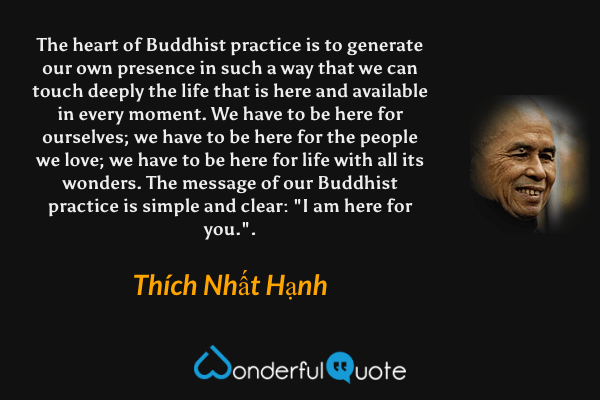
The heart of Buddhist practice is to generate our own presence in such a way that we can touch deeply the life that is here and available in every moment. We have to be here for ourselves; we have to be here for the people we love; we have to be here for life with all its wonders. The message of our Buddhist practice is simple and clear: "I am here for you.".
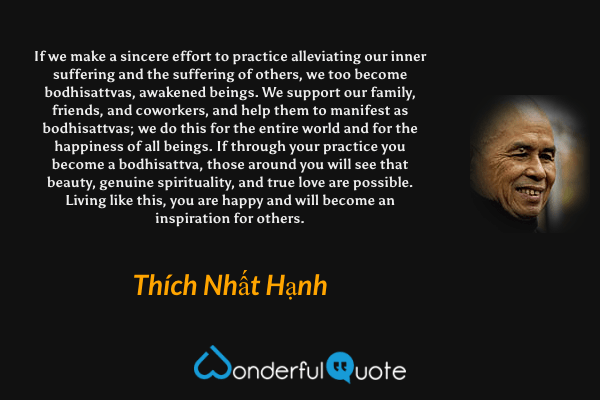
If we make a sincere effort to practice alleviating our inner suffering and the suffering of others, we too become bodhisattvas, awakened beings. We support our family, friends, and coworkers, and help them to manifest as bodhisattvas; we do this for the entire world and for the happiness of all beings. If through your practice you become a bodhisattva, those around you will see that beauty, genuine spirituality, and true love are possible. Living like this, you are happy and will become an inspiration for others.
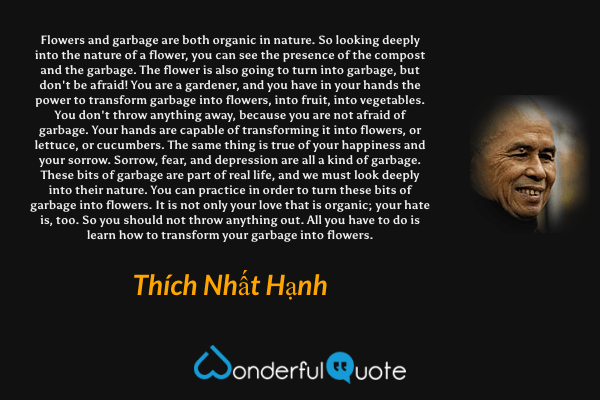
Flowers and garbage are both organic in nature. So looking deeply into the nature of a flower, you can see the presence of the compost and the garbage. The flower is also going to turn into garbage, but don't be afraid! You are a gardener, and you have in your hands the power to transform garbage into flowers, into fruit, into vegetables. You don't throw anything away, because you are not afraid of garbage. Your hands are capable of transforming it into flowers, or lettuce, or cucumbers. The same thing is true of your happiness and your sorrow. Sorrow, fear, and depression are all a kind of garbage. These bits of garbage are part of real life, and we must look deeply into their nature. You can practice in order to turn these bits of garbage into flowers. It is not only your love that is organic; your hate is, too. So you should not throw anything out. All you have to do is learn how to transform your garbage into flowers.
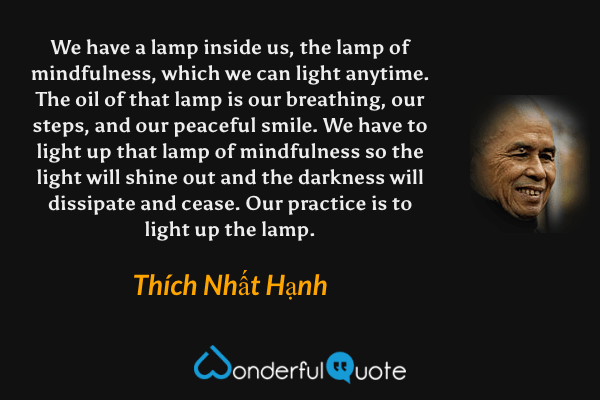
We have a lamp inside us, the lamp of mindfulness, which we can light anytime. The oil of that lamp is our breathing, our steps, and our peaceful smile. We have to light up that lamp of mindfulness so the light will shine out and the darkness will dissipate and cease. Our practice is to light up the lamp.
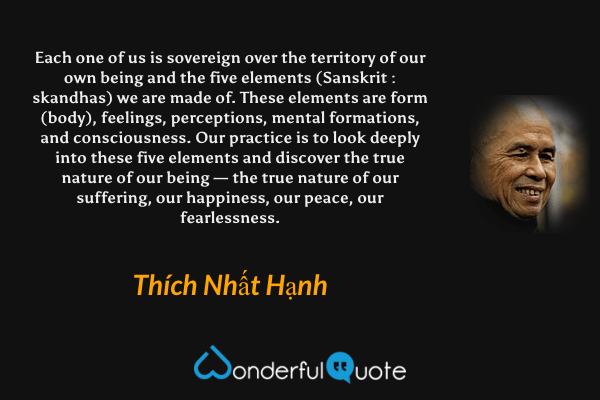
Each one of us is sovereign over the territory of our own being and the five elements (Sanskrit : skandhas) we are made of. These elements are form (body), feelings, perceptions, mental formations, and consciousness. Our practice is to look deeply into these five elements and discover the true nature of our being — the true nature of our suffering, our happiness, our peace, our fearlessness.
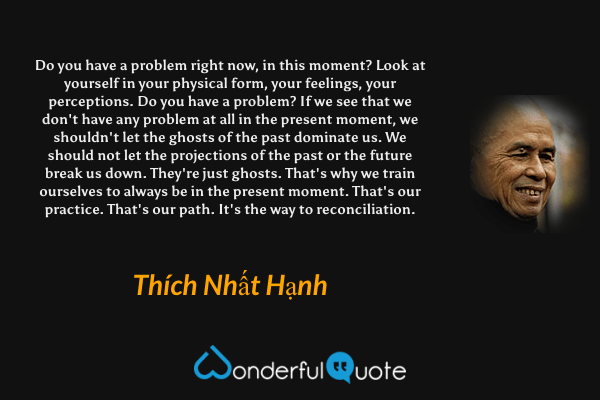
Do you have a problem right now, in this moment? Look at yourself in your physical form, your feelings, your perceptions. Do you have a problem? If we see that we don't have any problem at all in the present moment, we shouldn't let the ghosts of the past dominate us. We should not let the projections of the past or the future break us down. They're just ghosts. That's why we train ourselves to always be in the present moment. That's our practice. That's our path. It's the way to reconciliation.
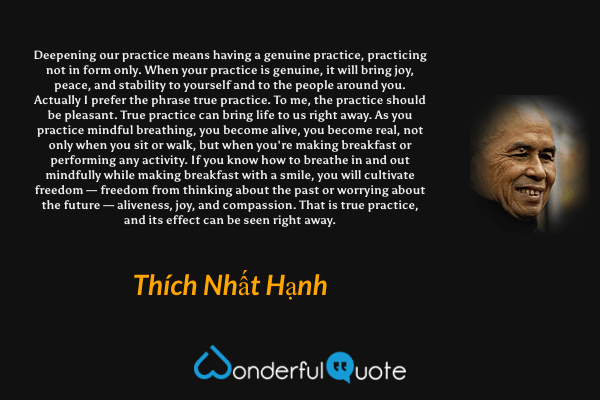
Deepening our practice means having a genuine practice, practicing not in form only. When your practice is genuine, it will bring joy, peace, and stability to yourself and to the people around you. Actually I prefer the phrase true practice. To me, the practice should be pleasant. True practice can bring life to us right away. As you practice mindful breathing, you become alive, you become real, not only when you sit or walk, but when you're making breakfast or performing any activity. If you know how to breathe in and out mindfully while making breakfast with a smile, you will cultivate freedom — freedom from thinking about the past or worrying about the future — aliveness, joy, and compassion. That is true practice, and its effect can be seen right away.
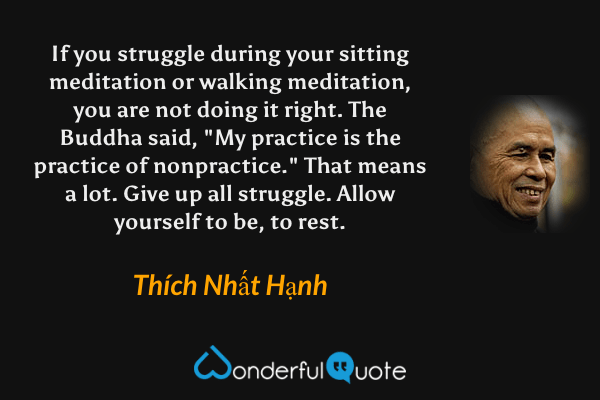
If you struggle during your sitting meditation or walking meditation, you are not doing it right. The Buddha said, "My practice is the practice of nonpractice." That means a lot. Give up all struggle. Allow yourself to be, to rest.
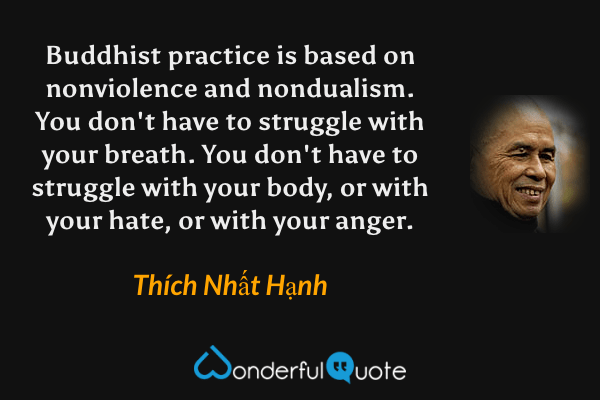
Buddhist practice is based on nonviolence and nondualism. You don't have to struggle with your breath. You don't have to struggle with your body, or with your hate, or with your anger.
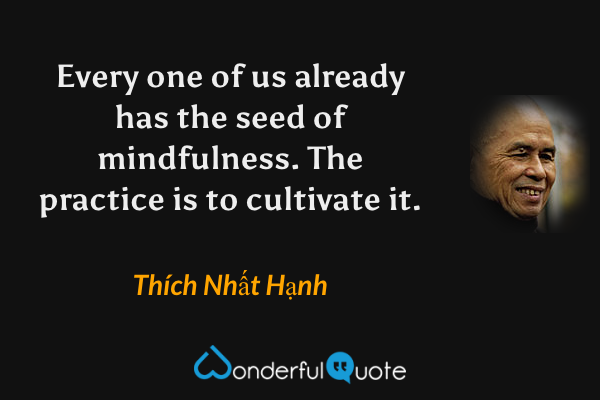
Every one of us already has the seed of mindfulness. The practice is to cultivate it.


